 |
| Home | Manchester | London | Birmingham | USA | Australia | New Zealand | Buckinghamshire | Oxfordshire | Contact Peter |
New Zealand
As with Richard (b.Cuddington 1792), for younger brothers Robert (b.Cuddington 1800) and Thomas (b.Cuddington 1802) the attraction of permanent employment, better wages and housing was sufficient to cause them and their families to move, in the 1830s, some 200 miles north to work in the cotton mills of the towns to the east and south east of Manchester.
Although the towns were relatively small and surrounded by open countryside this would have represented a dramatic change in their lifestyles. The shortage of raw cotton in the early 1860s caused by the American Civil War caused many of the mills in the Dukinfield/Stalybridge area to either close or operate on a part time basis. This cause considerable hardship to many families and protests resulted.
For Robert (b.Ashton 1838), whose father (b.Cuddington 1800), had left the uncertainty of work in agriculture for a better standard of living in a manufacturing region, unemployment was yet again the catalyst to migrate. On this occasion the move was even more dramatic to the great unknown of New Zealand on the opposite side of the world.
Robert, his wife Ellen, Alice (b.Ashton,1859) and William (b.Ashton,1861) sailed from Southampton on board the ‘Victory’ on 28th June 1863. They arrived safely at Lyttleton, New Zealand on 20th October 1863. It is likely that those on board received some type of sponsorship as all those on board were ‘Lancashire operatives’. The Immigration Commissioners in New Zealand spoke particularly highly of the arrangements on the vessel.
Although this ship is smaller than those usually employed as immigration ships, we found her particularly clean and orderly.
The arrangements of the sleeping berths we highly recommend, as they are fitted as to allow a passage all round between the berths and sides of the ship during the day, by which arrangement the accumulation of dirt and wet was avoided.
There was only one death during the voyage, which occurred shortly after leaving Southampton, and very little sickness throughout the voyage, which we consider to be attributed to the excellent sanitary arrangements and the strict discipline enforced by the surgeon in charge.
We beg to call the attention of the Government to the above facts, as, from the small size of the ship, and the distress that prevailed in the locality from which these passengers came, more sickness and irregularities might have been expected on the voyage.
It seems that the passage was at least part funded by the public of Canterbury (NZ) who contributed towards a fund to pay the fares of unemployed Lancashire mill workers.
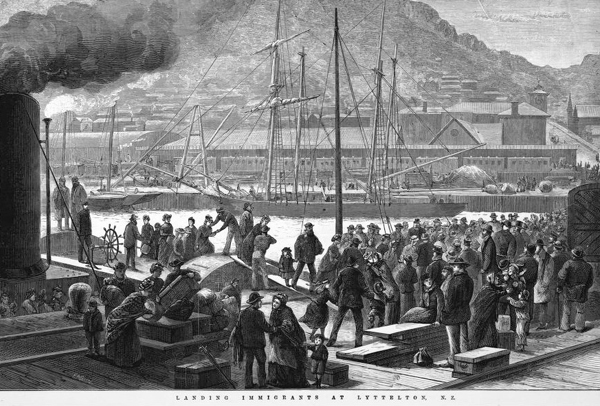 New arrivals at Lyttleton Harbour, c. 1870
New arrivals at Lyttleton Harbour, c. 1870
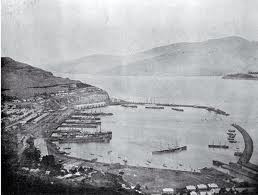 Lyttleton Harbour in Victorian times
Lyttleton Harbour in Victorian times
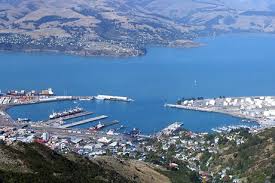 Lyttleton Harbour in modern times
Lyttleton Harbour in modern times
William (b. Ashton, 1861) unfortunately died a month after the family arrived in New Zealand but Robert and Ellen settled in Lyttleton where they had eight more children. The descendants of Robert and Ellen tended to be large and many have remained in the Christchurch vicinity.
Ellen died in Christchurch Hospital (south island) in 1903. Interestingly when Robert died in 1908, it was at Wanganui on the north island. Upon his wife’s death perhaps Robert moved to live near his son, Walter, who upon his death in 1940 lived on the north island at Stratford, approximately 60 miles from Wanganui.
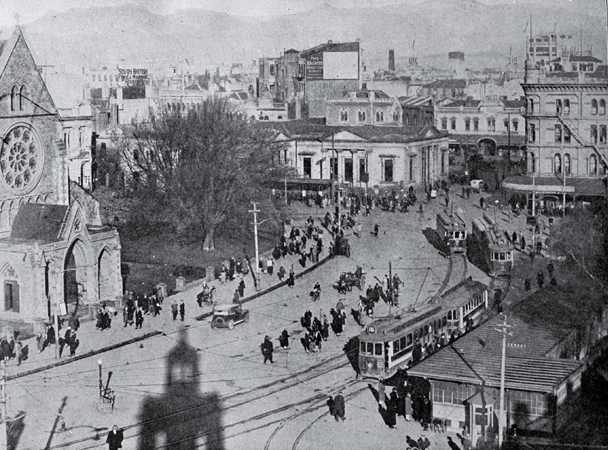 Christchurch, early 20th century
Christchurch, early 20th century
Barry Croton (b.Christchurch, 1951), great grandson of Robert, was one of eleven children. His father, Albert (b. Christchurch, 1905) was one of twelve, whilst his grandfather Frederick (b.Lyttleton, 1876) was one of Robert’s ten children. Barry and his family have supplied much of this information and continue to maintain contact today.
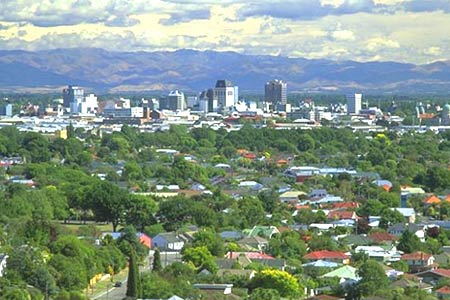 Modern day Christchurch
Modern day Christchurch